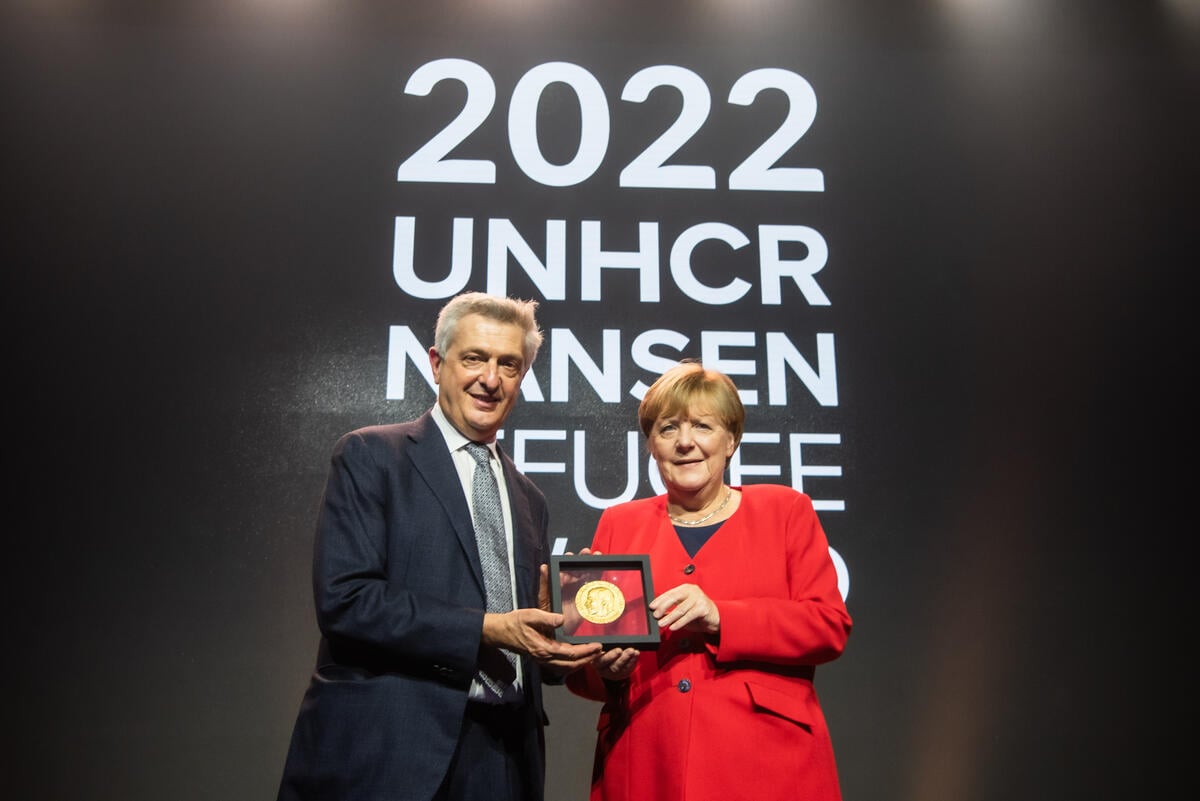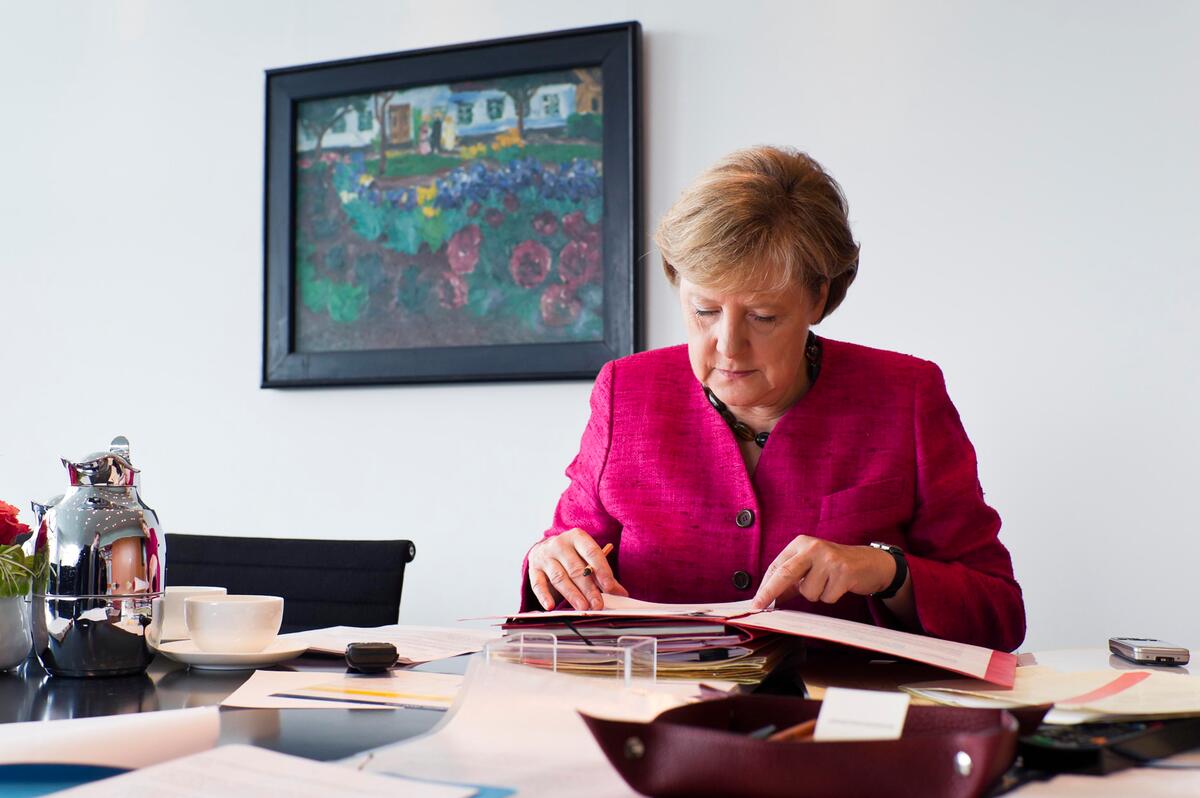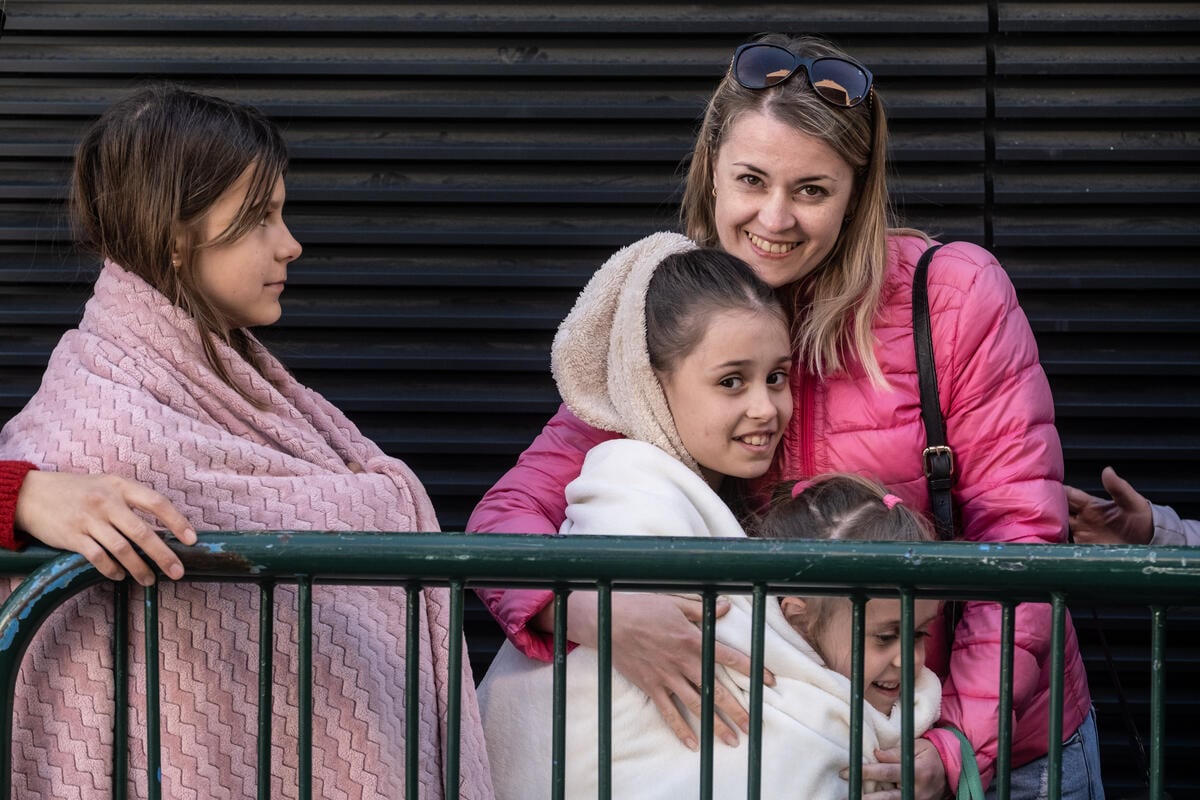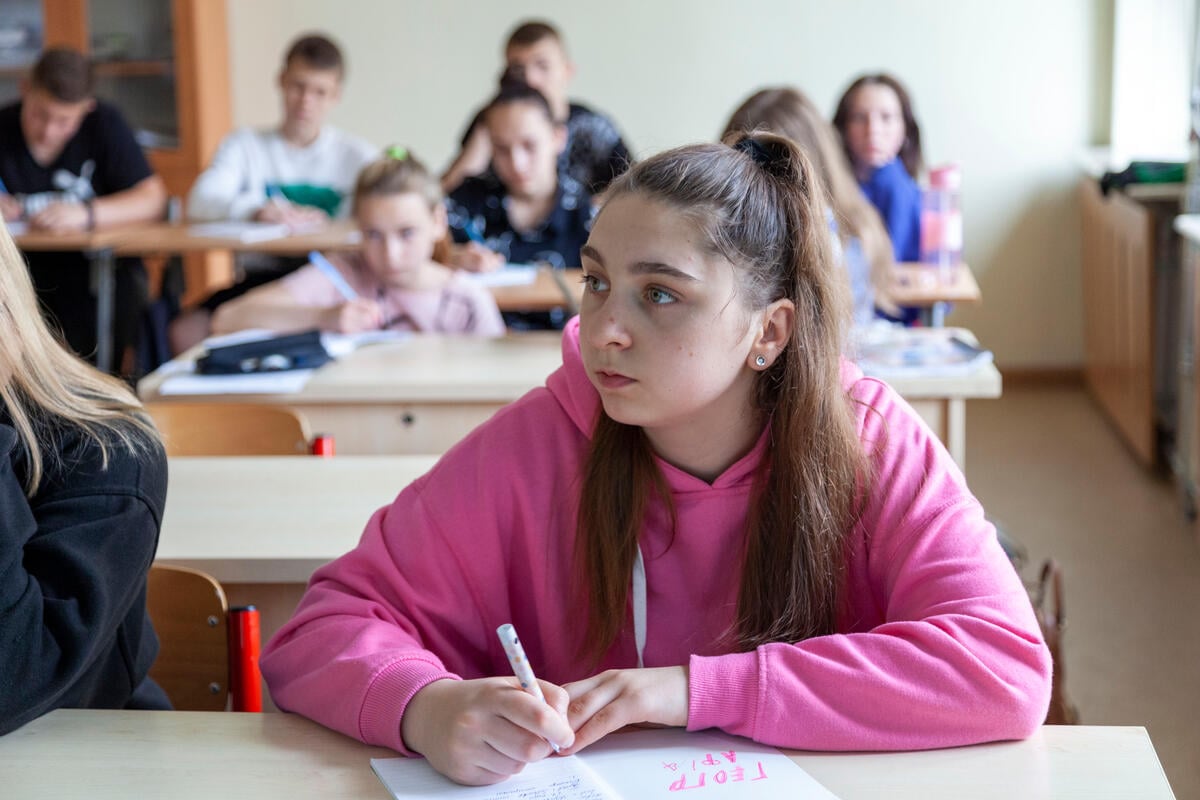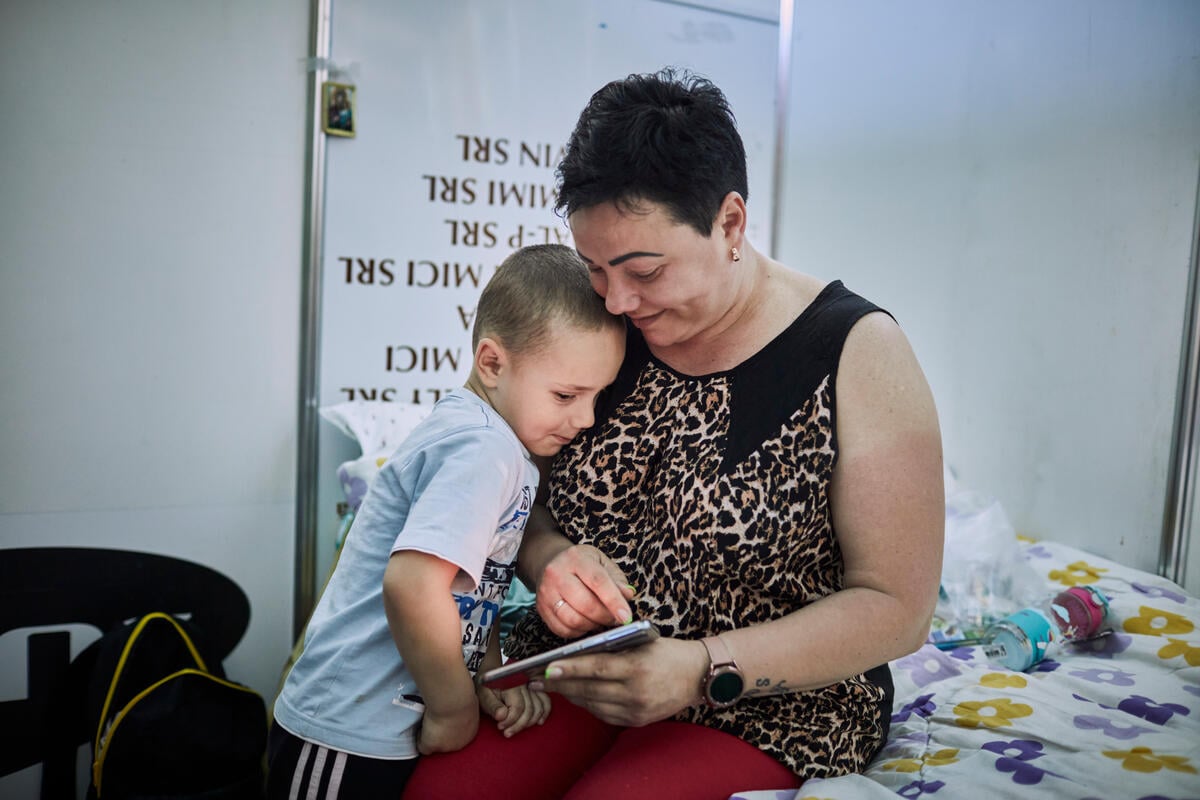Fearing rough seas, refugees chance Bulgaria land route
Fearing rough seas, refugees chance Bulgaria land route

HARMANLI, Bulgaria, Oct 23 (UNHCR) - When he set out from war-ravaged Syria for Europe, Aleppo truck driver Faisal, his wife Frida and their four daughters considered piling into a boat to cross the Mediterranean but rejected it: None of them could swim.
"The only important thing to me is my family's safety," Faisal said, pointing to his daughters, aged between 7 and 13, as they sat together in their room at a sprawling former military barracks in Harmanli, not far from the frontier with Turkey.
Instead, the family, from the Yazidi sect, which has been targeted by militants, shelled out US $6,700 to a smuggler to deliver them over the land border to Bulgaria. The cost was considerably higher than that of the perilous sea crossing to Europe, which has claimed at least 3,135 lives so far this year.
This family is among 13,000 asylum-seekers who have beaten a path through Bulgaria this year on a trek to find a safer route to Europe, a journey with many hazards of its own as land borders harden.
Caught in their first attempt to reach Bulgaria, Faisal's family landed in jail. Their identity cards were confiscated before they were sent back to Turkey, where they tried again to cross a border that is tightening.
As winter approaches, Bulgaria wants to extend a fence that currently runs along its frontier with Turkey to 160 kilometres from its current 50 kilometres. It is watched over by armed guards and high tech surveillance equipment.
Last week an Afghan refugee was shot and killed by a Bulgarian border guard near the frontier town of Sredets. UNHCR condemned the killing and has demanded an investigation. But Bulgarian public opposition towards refugees has hardened.
At a small stove in the women-only dorm in Harmanli, Aveno, a young Kurdish mother from Qamishli, in northern Syria, stirred a simmering pot of soup. She multi-tasked, cradling her four-month-old baby in one arm, while her one-year-old son tugged at her shirt for attention. "They got very tired along the way here," she said.

After militants killed her husband, Aveno had scraped together 4,500 euros to get here, rather than risking her children's lives on the treacherous sea route to Greece. She hopes her daughter, who suffers from a heart condition, will get medical care.
A middle-aged woman who helps Aveno cook said she had just spent three days lost in a Bulgarian forest along the border. She was beaten by police, robbed and sent back to Turkey, but found her way back. "We women need to keep together for safety," she said.
An influx of refugees at the Harmanli reception centre in recent months led officials to set up an overflow camp in tents and then prefabricated trailers. But it has noticeably emptied out in recent weeks as refugees and migrants opt to push on to reach other European countries.
Bulgaria operates six reception centers, with a total of 5,130 beds, but today the centers are currently around 70 to 80 percent of their capacity.
"Now, barely anyone wants to stay in Bulgaria," Gospodin Gospodinov, a government caseworker at Harmanli said, his desk strewn with refugee claims. "Some wait for our decision, while others don't, and travel on illegally."


